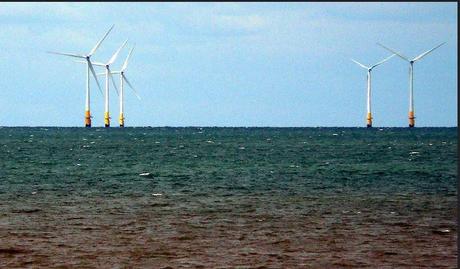The plight of renewable energy within the UK has not been an easy one.
Despite clear targets for 20% more green energy by 2020, the issue of global climate change has become less pressing as both our national security and economy continue to be threatened.
However, things could be about to get worse.
For, while green energy hasn’t been on the top of the government’s agenda there have been some (albeit half hearted) attempts to encourage
If Scotland breaks away from the UK, without settling on a mutually beneficial renewables relationship with the UK, we could see a catastrophic u-turn .

Currently, Scotland produces one third of the UK’s renewable energy, the process of which is subsidised by the UK government.
Should an agreement not be reached, the UK could well stop its subsidies, leaving Scotland to abandon its clean energy production (instead relying on oil) and leaving the rest of the UK with a green power deficit.
Of course some small islands, like the Isle of Muck who rely on renewable energy for everyday electricity, may still employ certain installations, but nothing on the current level.
While this may seem like scaremongering, the UK government has already made threats to cut or stop green energy investment in Scotland.
In April this year a paper published by the Department of Energy and Climate change said the ‘UK would not be obliged to purchase energy from an independent Scottish state.’

Ed Davey, the Energy Secretary further cemented this.
He said: “If I am no longer secretary of state for energy in Scotland I have to put the interests of consumers in England and Wales and Northern Ireland first."
This would leave Scotland residents facing bill increases of £38 and £189 per year, according to the BBC.
As Scotland scrabbles to get its finances in order post devolution handling consumer finances will be the last thing they want to do, and returning to oil may well be the easiest and most cost effective method.
As those anti-renewables already point out, there is little point in investing in something that costs more than it raises.
Clearly it makes little sense for either power to stop acting as single market, but splits in power never run smooth, and if there is to be one loser, it seems it will be renewable energy.
The DECC refused to comment as to whether there was a firm plan in place if Scotland votes Yes.
He did say: "We don't want to say too much at this stage given that it would be speculation. We are working for a United Kingdom and our plan going forward involves Scotland. Obviously if Scotland vote for independence we will have to revisit that plan. People shouldn't be concerned about the impact independence would have on our renewable energy plan."
